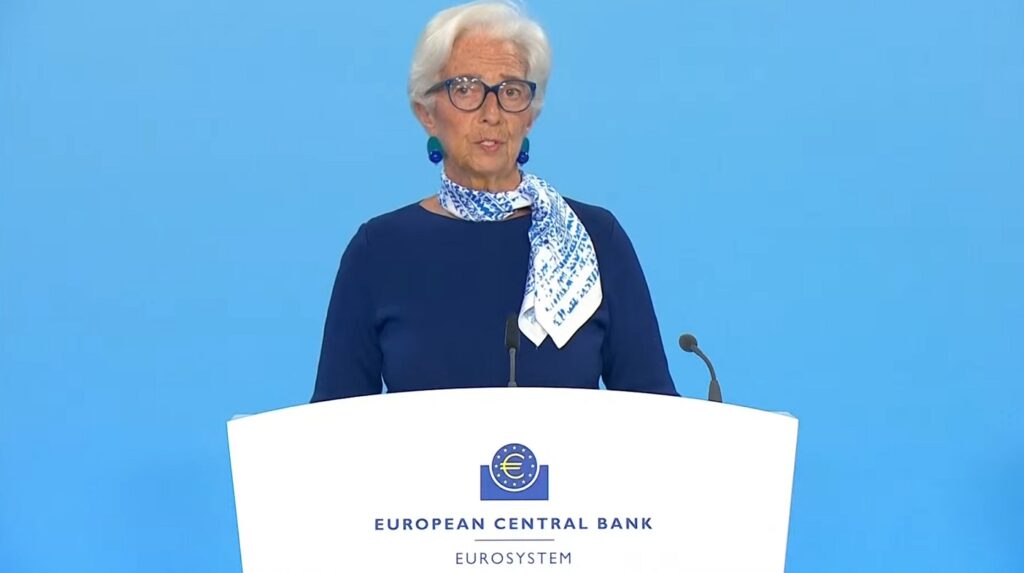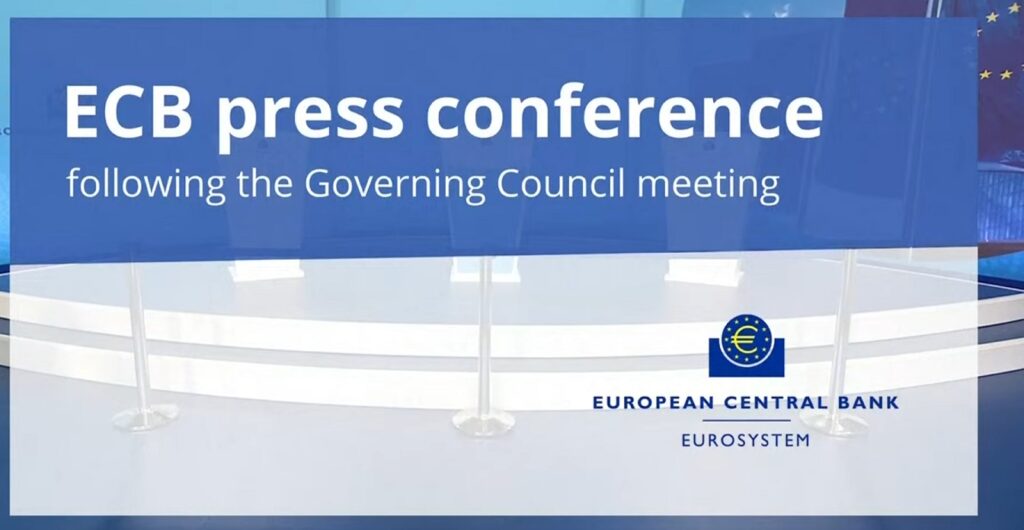
The European Central Bank (ECB) has kept its key interest rate steady at 2% during its July meeting, marking a shift after four consecutive rate cuts this year. The decision comes as the EU faces “exceptionally uncertain” global conditions, mainly due to ongoing trade negotiations with the United States.
📉 ECB Pauses After Four Rate Cuts
Earlier this year, the ECB slashed rates from 3% in January to 2% in June, following a steep fall from a record high of 4% last year. The central bank now believes inflation is largely under control, but rising trade tensions are making it difficult to predict future economic trends.
“The environment remains exceptionally uncertain, especially because of trade disputes,” the ECB said in a statement.
Although inflation recently hit the ECB’s target of 2%, the bank decided to pause to see how global developments — especially a possible U.S.-EU trade deal — unfold.
⚠️ US-EU Trade Talks Cloud the Outlook
The European Union is racing to reach a trade agreement with the U.S. before August 1, when the U.S. may impose 30% tariffs on EU goods. If this happens, it could slow down Europe’s economy and push the ECB to cut rates again as early as September.

The U.S. is the EU’s largest trading partner, with over €500 billion worth of exports last year. The possibility of high tariffs is making businesses and investors nervous.
💬 Lagarde: Growth at Risk, But Some Positives
ECB President Christine Lagarde said the eurozone economy performed better than expected earlier this year. This was mainly due to strong private consumption, investment, and businesses shipping goods early ahead of possible tariffs.
However, she warned that growth risks are now “tilted to the downside”, meaning the chance of an economic slowdown is higher if trade tensions worsen.
On the other hand, a quick trade deal, along with higher European defense and infrastructure spending, could boost growth in the months ahead.
💱 Strong Euro Raises Concerns
Investors are watching the euro’s recent strength. A stronger euro makes imports cheaper, which can reduce inflation. This could complicate the ECB’s efforts to stabilize prices.
Lagarde said the ECB is closely watching how the euro’s rise — from $1.026 in January to around $1.176 in July — could affect inflation. She also pointed out that higher global tariffs might redirect cheap goods into Europe, potentially lowering prices further.
📊 What’s Next? “Wait and Watch” Mode
Lagarde said the ECB is in “wait and watch” mode, and the current interest rate is in a “good place” for now. She added that all options are still open, including more cuts or even rate hikes later, depending on how the economy performs.
Experts agree:
- RBC Capital Markets now predicts no more rate changes this year.
- MHA’s Joe Nellis says a rate cut in September is possible if U.S. tariffs hit.
- Deutsche Bank’s Mark Wall even sees a chance of rate hikes in 2025 if trade tensions ease and the economy stays strong.